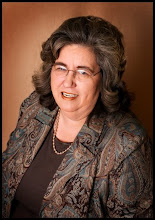The first time my late husband and I were faced with a decision relative to medication use for Billy Ray was very stressful. Billy Ray was seven years old. The word Autism had not yet entered our vocabulary. We were just learning about Bipolar and ADHD. His behavior could sometimes take three of us to control.
“Dr. Ron” (Ronald R. Roy, now deceased) whom I refer to as my mentor from the grave and dedicated Parenting Your Complex Child (together with Billy Ray) was our first pediatric psychiatrist. We talked a lot about risks in those days. The risk of side effects as opposed to the risk of doing nothing. The latter risk is a very real thing to consider. Quality of life issues are always an important consideration.
That first decision was whether to use a anti-seizure drug as mood stabilizer. One of the risks associated with it was a blood count issue that could be dangerous. We struggled with it. Then one day I was talking with my own psychiatrist, asking his opinion about using it for Billy Ray. His statement set the course of my thinking in many other decisions. He assured me Dr. Ron was very cautious about regular testing and could discontinue it quickly enough to minimize the risk.
In discussing risks, a longtime pediatrician once went over the risks of using plain aspirin as an example. If people realized all the risks of aspirin, no one would probably use it. It is such a common part of our culture that no one really thinks about the risks involved.
These, then, are questions we must ask about most decisions relative to our children who experience special needs:
- What is the risk involved in doing nothing?
- What is the risk involved with the treatment suggested?
- Is there anything that can be done to minimize the risk?
At that time, it appeared the risk of doing nothing meant placing Billy Ray in the state institution (now closed). It would clearly impact the quality of his life. The additional reality was that placed in that kind of setting, he would be medicated anyway. The risk would be minimized by regular blood tests and the medication stopped immediately.
We took the risk. Billy Ray stabilized for several years including the last five years of his father. It enabled him to have a very special time with his Dad. We have considered other medications over the years that the risk seemed just too much.
There are many other risks in life than what medication to use. For example, various support staff have questioned the degree of involvement we also Billy Ray to have in preparing meals. The stove is hot. He could get burned. So could you! So could I! Life is a risk we take each day we wake up. The alternative is risky too.
Billy Ray loves his service dog. If he is experiencing communication by behavior he is mostly likely to express it to someone he feels most secure with – Mom and service dog. The risk is always there that he will get a dog bite. We discussed the benefit of the dog and the risk with the pediatrician years ago. He has never been bitten but he has gained much benefit from having his dogs over the years.
While we should never assume risks haphazardly, it seems so important to always look at both sides including the risk of not doing anything.
Until next time,
Peggy Lou Morgan
http://www.parentingyourcomplexchild.com/
http://www.lighthouseparents.com/






1 comment:
I have had reservations about giving Griffin medication (Clonodine) for sleep but finally came to the conclusion that if he doesn't sleep, I don't sleep. If he doesn't sleep he can't focus on school or have desired behaviors and his quality of life would be deminished. Not to mention that I would be an awful mess. So, I understand your point of what the risk is of not doing anything. I am so glad that I finally broke down and started to give Griffin this much needed medication because it makes our lives much easier and richer. There's nothing like a good night's sleep and now I can't imagine our lives without it. Thank you for giving us something to think about because it really is an important topic.
Post a Comment